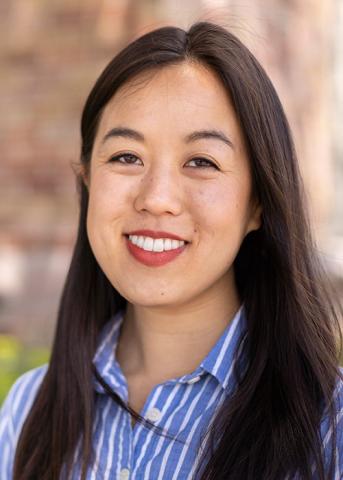Alicia Yang is a Registered Dietitian Nutritionist. She graduated from the UW with an MPH in Nutritional Sciences.
Why did you decide to get an MPH in nutritional sciences?
I was working as a clinical and research dietitian at the UCLA Center for Human Nutrition, and I noticed that many of my patients were tackling similar issues. They were living and working in an environment that did not support health, they had difficulty accessing or preparing food, and they were frustrated with getting the health care they needed. I wanted to make a difference on a population level.
What motivates you about public health?
People in this field are working towards justice. They want to see change in their communities and are relentlessly working upstream to achieve it. To be part of it is both intimidating and inspiring.
Why did you choose the UW?
I did my undergraduate studies in Seattle, but left to complete my dietetic training and work elsewhere. I missed the Pacific Northwest and liked the UW’s public health-focused Nutritional Sciences Program. Not only am I exposed to epidemiology and environmental health, but I also take courses in metabolism and clinical dietetics.
What sort of research are you doing?
For my practicum, I will be working with an epidemiologist at Public Health – Seattle & King County to assess food security in the region, as part of the city’s soda tax that took effect January 2018. For my thesis, I’m working with Deborah Bowen to validate an obesity behavior scoring system for women in South King County.
What experiences at the UW have been most influential?
I’m part of the UW chapter of Health Equity Circle, which aims to address the social determinants of health by building interdisciplinary and community partnerships. I’ve learned what it means to work towards health equity and have connected with people well versed in community activism and leadership. My cohort members come from various professional fields and backgrounds as well. Sharing this experience with them has been enriching.
What other jobs or volunteer work do you do?
I mentor high school students interested in health care professions. I was also a teaching assistant for Anne-Marie Gloster’s Culinary Nutrition Science course and Michelle Averill’s Lifecycle Nutrition course, where I led discussion groups and helped to plan course material. This work shifted my perspective as a student, making me more attentive and appreciative of the energy professors invest in their courses.
What are your future goals?
I hope to work in program implementation and/or evaluation on a county or state level. I would love to continue community work geared towards health equity.
What advice would you give prospective students?
Connect with a current student. Before applying, I found a student who had a similar background to mine and she was a valuable guide. We’re still in touch till this day.
Any hobbies or extracurricular activities?
I love to cook and have started gardening. I'm also learning to pickle and ferment foods.

